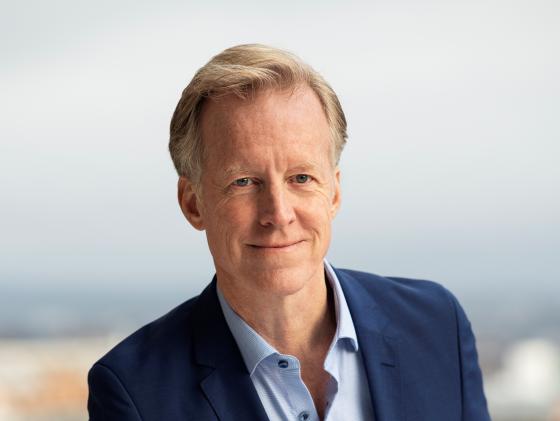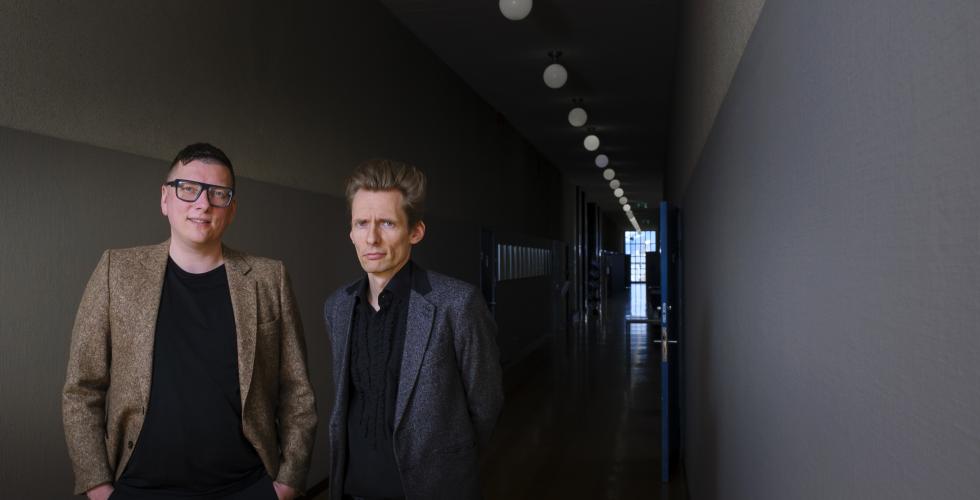Diversity under pressure from the US: “I urge Norwegian institutions to get involved now”
The call comes from Curt Rice, Executive Director of Fulbright Norway. He recently visited the US to discuss research exchanges with researchers, heads of institutions and members of Congress in light of new requirements.
“The situation provides an excellent opportunity to express our commitment to the values of academic freedom and equality and diversity, and, at the same time, strengthen ties with US research institutions,” says Curt Rice.
As a Norwegian and American who is well-versed in gender equality and diversity in research, we wanted to ask Rice about what is happening in the field of gender equality and diversity in the US research sector and how Norway should respond to the changes.
Rice has long been engaged in gender equality and diversity and believes that the research community in Norway must bolster cooperation and researcher exchanges with the US.
“Norwegian institutions should get involved now,” says Rice, who has chaired the Committee for Gender Balance and Diversity in Research (KIF Committee) for two terms and is a former rector of NMBU and OsloMet.
From a formality to direct involvement
Since his inauguration on 20 January, Donald Trump has issued a number of executive orders that impact higher education and research in various ways.
One of these is the executive order mandating the termination of all diversity, equity and inclusion (DEI) programmes. This also applies to public universities and universities that receive federal funding. (Read more in the fact box.)
Rice has seen the consequences in practice through his work on approving research projects for researcher exchanges between Norway and the US.
“The US Government now no longer wants to fund diversity-related research projects through Fulbright.”
Rice explains that, up until this year, the US Fulbright board’s approval of the candidates selected by Fulbright Norway was a mere formality.
“This year, however, the US Deputy Secretary of State. has looked at each and every application and filtered out research projects they don’t want to support.
That is not part of the agreement between Norway and the US,” he says.
“How is Fulbright Norway responding to this?”
“We are still in the midst of this process, but we are exploring the possibility of finding alternative funding options for applications that are stopped due to political intervention,” says Rice.
Diversity and climate researchers are being stopped
Fulbright has four exchange categories: researchers from the US to Norway, students from the US to Norway, researchers from Norway to the US and students from Norway to the US.
Thus far, according to Rice, it is the group of researchers from the US who want to go on an exchange to another country who are most affected, at least in the Fulbright system.
“How many are affected and who are they?”
“The group that the US authorities are most interested in is American researchers going to Norway.”
“Around a third of the applicants from this group are affected, and their applications have been put on hold pending final consideration,” says Rice.
He explains that some of them have been stopped because they research climate issues, others because they research diversity. However there is also a third group where the reason remains unclear.
“I haven’t given up trying to exert an influence”
In addition to the executive order to end all DEI programmes, a glossary of research “red flags” has been drawn up. The problematic words include “woman”, “indigenous people”, “racism”, “ethnicity”, “discriminated” and “diversity”. If a project contains words on the list, it may be flagged for closer inspection.
“I disagree with many of the decisions, such as stopping projects on Sami issues, but I haven't given up trying to exert an influence,” says Rice.
He therefore calls on Norwegian higher education institutions to step up their cooperation with the US, in two ways in particular:
The first is for Norwegian educational institutions to facilitate research stays for researchers from the US, and the second concerns the importance of student exchanges in both directions.
“Nothing beats personal relationships when it comes to enabling two countries to understand each other,” says Rice and elaborates:
“Anyone who spends a year in Norway will inevitably be exposed to Norwegian gender equality and diversity values.”
He also calls on the Research Council of Norway to use its funds strategically.
“I would like to see the Research Council deciding to prioritise the most contentious issues in terms of threats to academic freedom, such as research on climate and diversity. These are not only strong disciplines, but also values that are enshrined in Norway.”
”I don’t think Europe is going to kowtow to the US”
Many people are now wondering how US policy will affect the work on gender equality and diversity in Europe. Rice is optimistic.
“I believe that it will have a positive impact on the European research sector. With many people here opposed to what’s going on, when the US halts diversity work, Europe will respond by welcoming it. This will demonstrate our independence and ensure we don’t kowtow to the US.”
Rice has noticed this in informal comments and processes with others in the research sector in Norway, but has also seen signs that gender equality and diversity are being strengthened in the Horizon Europe research programme.
“What may prove challenging is that there is also a lot of cooperation with the US at the European level, for example with the National Science Foundation, and what happens then?” he asks and answers:
“We don’t know, but I don’t think the European Commission is going to kowtow to the diversity requirements coming from the US. It may instead bolster Europe’s position in global research,” says Rice.

“Choose Europe”
The European Commission recently launched a package in which they have put forward EUR 500 million to tempt US researchers to come to Europe. Ursula Von der Leyen launched the package at the “Choose Europe” conference held in Paris in early May. Research ministers and other leaders from several European countries, including Norway, the UK and Switzerland, participated.
The conference was organised by the President of France, Emmanuel Macron, and held at Sorbonne University.
The Research Council of Norway has also shown an interest in this issue, and recently launched a NOK 100 million programme to recruit experienced researchers from countries outside Europe.
“Researchers from the US will also be eligible for this scheme,” writes Benedicte Løseth, Executive Director at the Research Council of Norway, in an email.
The details of the Research Council of Norway’s new initiative to recruit experienced researchers from countries outside Europe will be finalised soon, according to Løseth
“Equality and diversity are under intense pressure in the US right now, and this includes research in the field. Many of the words that have ended up on the Trump administration’s “no-go'” list are related to gender, diversity and equality,” writes Løseth.
“This is a serious situation that requires us to stand up for democratic values and academic freedom," she writes.
Translated by Totaltekst.
- The Fulbright programme is the US Government’s largest international educational exchange programme.
- Fulbright is present in 160 countries and has 160 bilateral partnerships.
- Since 1949, when Fulbright was established in Norway, the Norwegian programme has sent more than 4,000 Norwegians to the US and welcomed almost 2,000 US citizens to Norway.
- The programme is for both students and researchers.
Source: Fulbright Norway
Donald Trump has signed several executive orders in 2025 that directly impact DEI initiatives and programmes in academia.
Here is an overview of three key executive orders:
1) Executive Order 14151: “Ending Radical and Wasteful Government DEI Programs and Preferencing” directs federal agencies to discontinue DEI initiatives and remove requirements for such measures in connection with contracts and accreditation. The order was signed on 20 January 2025.
2) Executive Order 14173: “Ending Illegal Discrimination and Restoring Merit-Based Opportunity” rescinds previous directives that supported DEI initiatives and directs federal agencies to end “discriminatory and illegal preferences” in employment and education policies. The order was signed on 21 January 2025.
3) “Reforming Accreditation to Strengthen Higher Education” aims to change the accreditation system (the bodies responsible for the accreditation and formal recognition of universities and colleges), with a particular focus on reducing the influence of diversity, equity and inclusion (DEI) policies. The order was signed on 23 April 2025.





